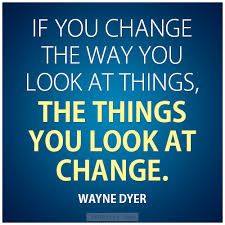Diabetes Lies
How do you feel when you find out that someone has been lying to you?
You feel cheated, stupid and end up having trust issues.
It doesn’t even have to be full-on lying, it can also be a few mis-truths, or not telling you the whole story so that you can’t put things into context.
For 26 years I believed a lot of things about diabetes that I now know are untrue. For 26 out of 30 years I believed that I knew less than my doctors, that I couldn’t trust my instincts and that I was just doing it all wrong.
And all along my mother has said that “you’re always your own best doctor”. Boy, oh boy is she right! But when you’re told, repeatedly by people who “know better” that this isn’t the case and that you should really be doing it their way, which is usually straight out of a medical textbook, you start losing faith in your own thinking, reasoning and ways. What about what works for YOU as an individual? We both know that diabetes is a very individual disease and there are as many options to manage it well as there are people who have it.
It wasn’t until I was finally brave enough to look my own health in the eye and decide to take it into my own hands that I noticed that I truly had the power to change my own health destiny. This was an incredibly difficult step to take, not to mention scary.
I had been told for far too long, and far too many times, that what I was about to do I would probably die from. Straight away. This was clearly a blatant lie, I’m still here and I’m doing better health-wise than ever.
But what I’m really here to do now is to stop the lies. Stop the untruths that are clearly ruining more people’s lives than they have to. They’ve had their time on stage, it’s time for the truth.
Do you ever feel like there has to be more to it than just “eat like everyone else and take more insulin”?
Have you lost a little hope to ever get diabetes more controlled?
Diabetes can often put you in a life or death situation. Sometimes more often than you’re willing to give it credit for. This is why it’s so important to stop being lied to, to trust your gut feeling and to realize that more insulin isn’t automatically the only answer there is for you to control diabetes better.
I know what it’s like to being close to giving up completely, just do what the doctors tell you (because-they-know-best) and deep down wonder “why me?”. To play a game of Russian roulette with your life at stake – every day. It sucks. It feels so hopeless and there’s no end in sight. At the same time, you don’t have the energy to do anything about it, either. Mainly due to your fluctuating blood sugars, where curves closely resemble something like a roller coaster. You’re stuck in a well, looking for the rope you need to get out.
In order for you to actually get out, and here comes the major suckage, you have to take responsibility for your situation AND your own health. You need to look your own health in the eye and show it who is boss. Plainly put, it’s about going from not giving a shit to giving tons of shits.
But you can only get there if and when you know the true facts. The real things that will help you feel better, be healthier, happier and more blood sugar stable. The information that takes you off the roller coaster and puts you in the spinning tea cups, if you will.
Diabetes will never be completely at bay, especially not if you have Type 1. But with a few changes of food, simple tricks and lifehacks it can get so much better.
You just have to realize how to make the shift of going from doing-it-by-the-book-but-it-doesn’t-work to ah-this-is-awesome. With this shift, you choose to be healthy and happy.
A great first step could be to join the webinar I’m hosting on Monday, 13th July 2015, where I’ll be talking about 5 major lies your doctor tells you about diabetes. This is your chance to learn how to help yourself to a better life with diabetes. It’s not hopeless, if I can do it, so can you.
Sign up for the webinar here.


